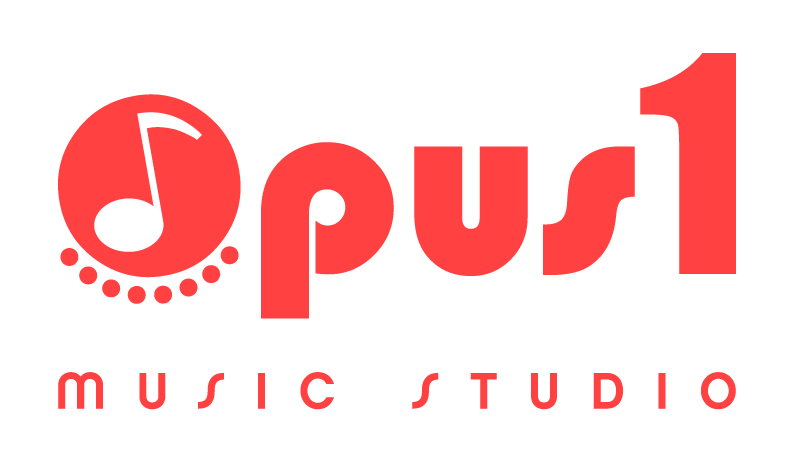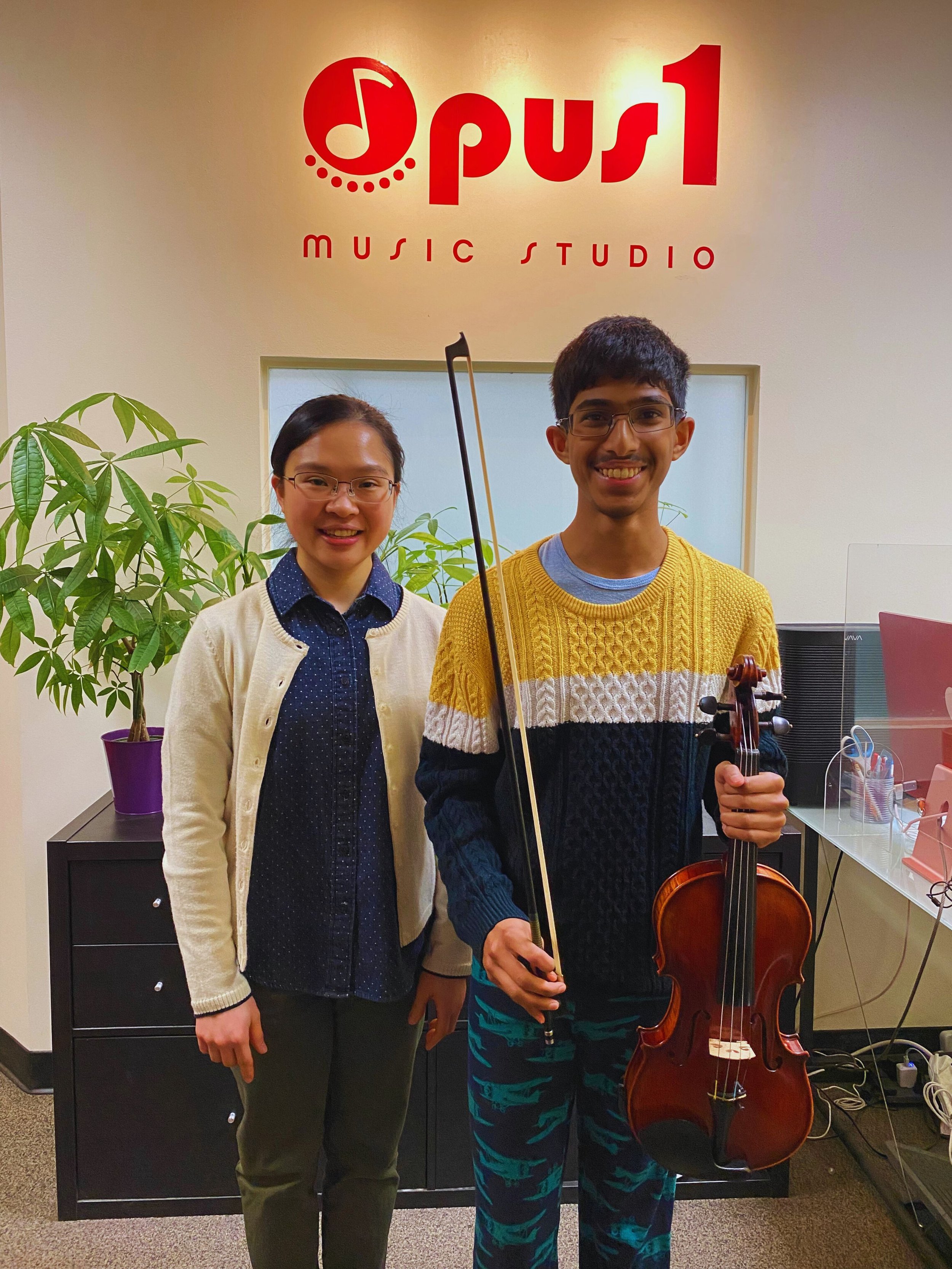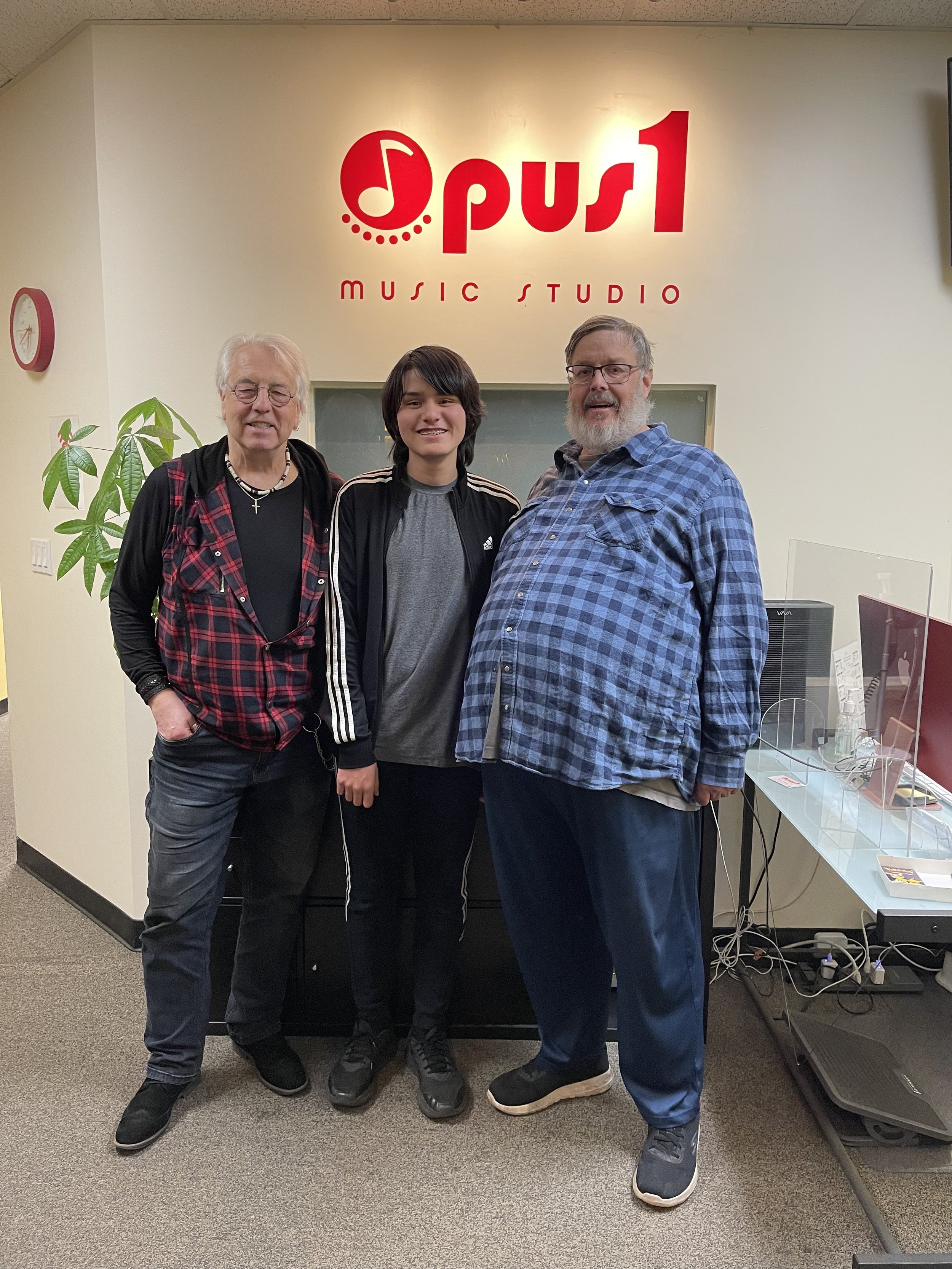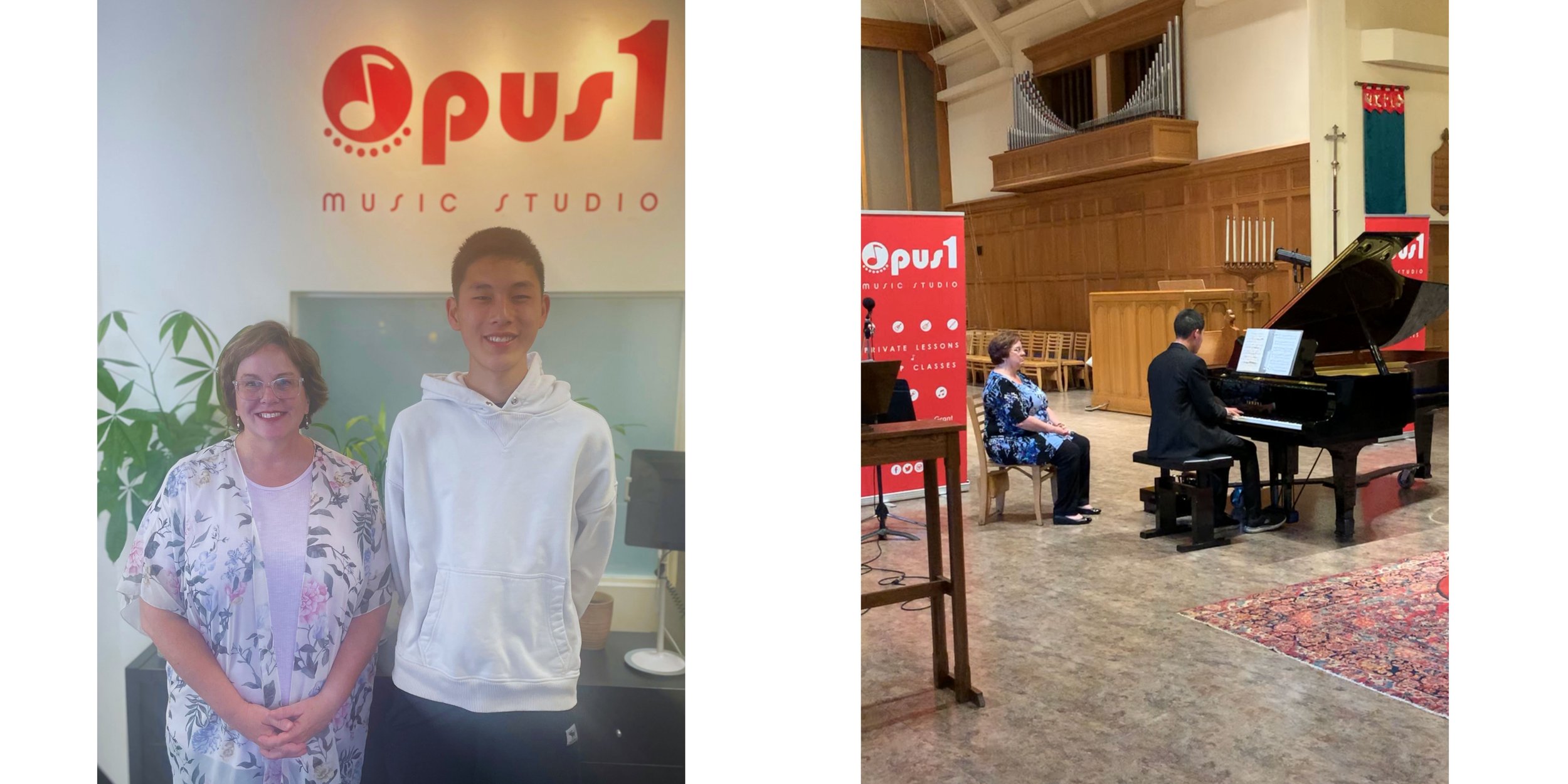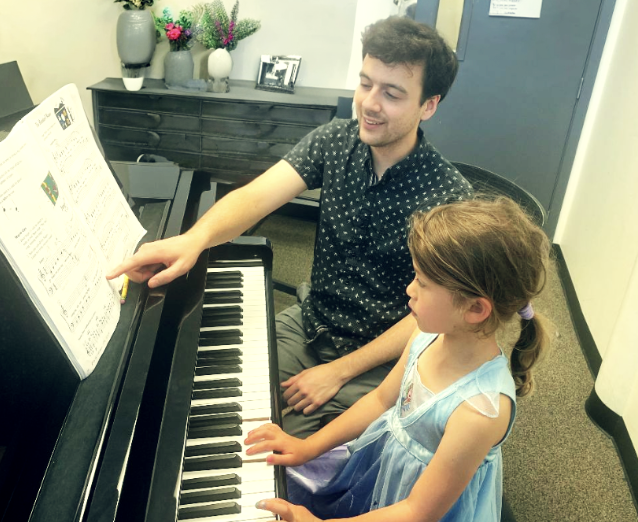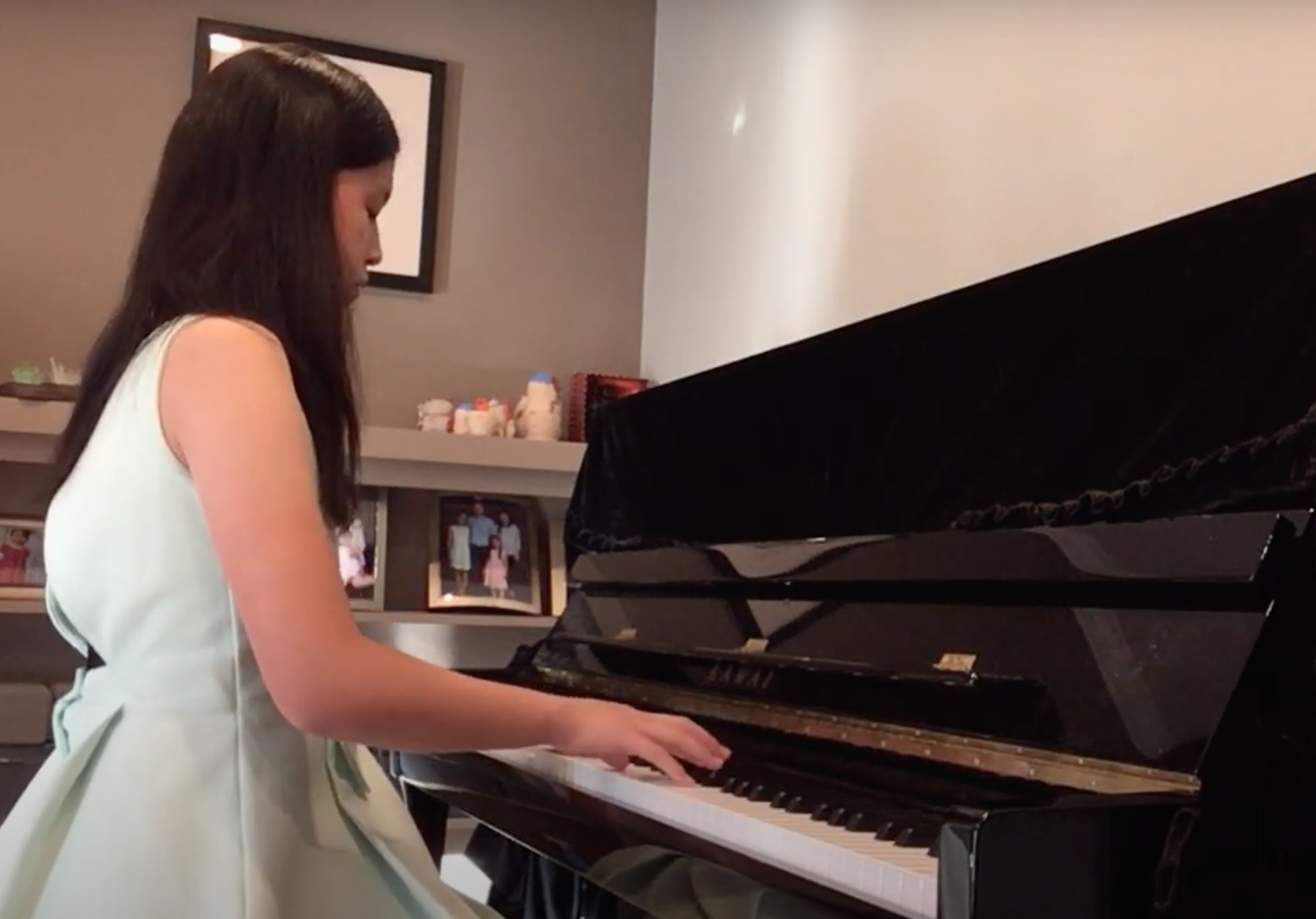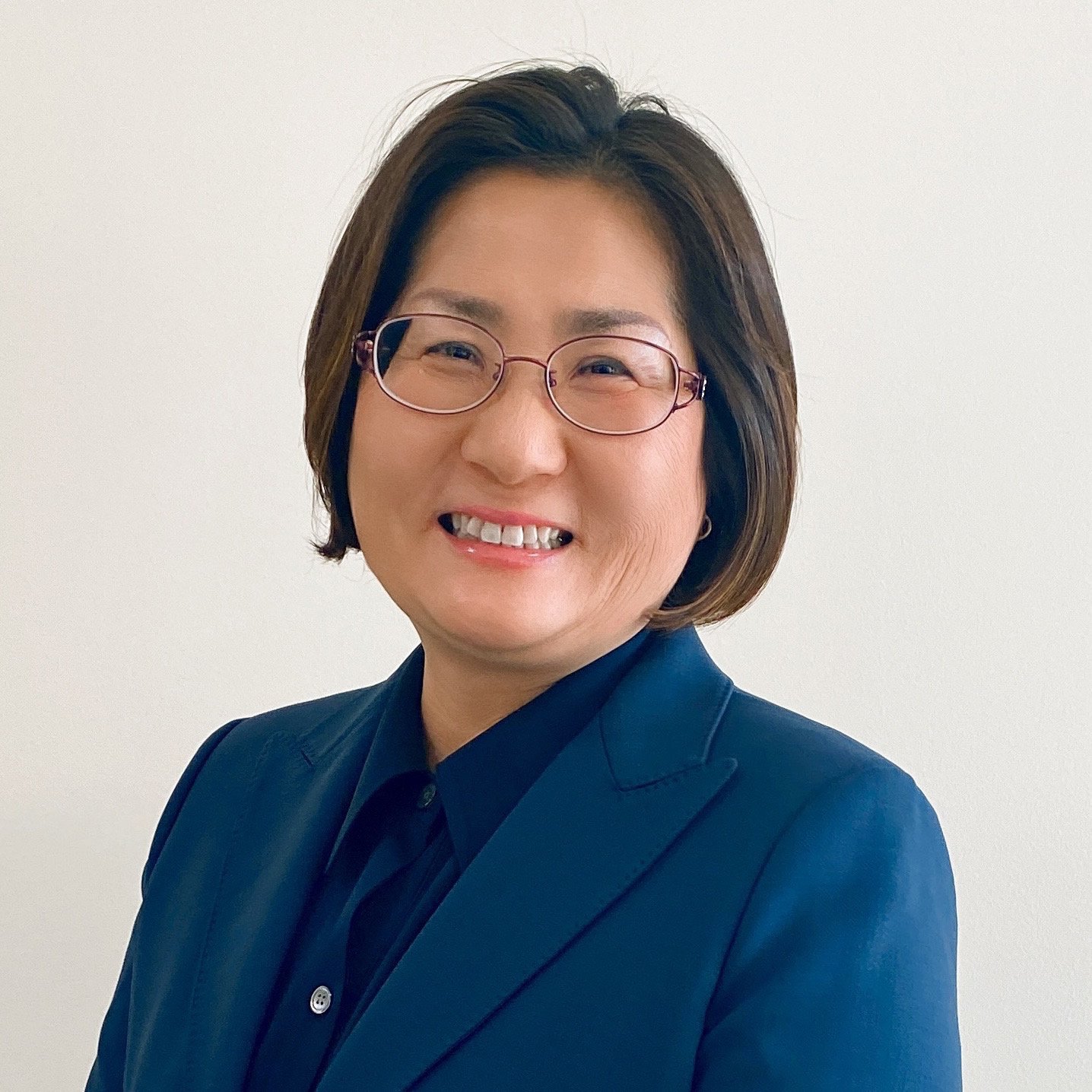Meet Joshua, a talented young pianist whose musical journey began at the age of six with a simple inspiration from a Facebook video. His dedication to the piano has guided him through both challenges and triumphs, from his humble beginnings as a young Opus 1 Student, to his recent success in the prestigious American Protege Competition. Check out our full interview with Joshua below!
How did your journey with the piano begin, and what inspired you to learn it?
I have been playing since I was six or so. I saw this random guy on Facebook play a C major scale across the piano really fast, and I wanted to be able to do that because I thought it was really cool.
Reflecting on your start at Opus 1, how did you find the initial experience of piano lessons?
I thought it was pretty hard, but it got easier over time. Once I learned the basic notes of the bass clef and the treble clef, then it was very easy to learn new songs and to just sight read some new songs. I was able to learn more octaves, more notes, and I can learn new songs very quickly now.
Could you share your experience participating in the recent piano competition?
It was the American Protege Competition, which is a very popular competition. I played Sonatina in C, and the judges ranked me as Honorable Mention! A lot of people got to have recitals in Carnegie Hall because of it. I got to perform there. It was really scary, but I was able to do it and I think the audience liked my performance.
What motivated you to enter the contest?
My parents and Teacher Doris wanted to see what would happen if I entered a contest and it turned out great! So now I am working on a piece for another competition that is coming up. I am also trying to join the California Youth Symphony, playing the cello.
How do you typically prepare for performances or competitions?
I usually only focus on working on the piece I will be performing. I don’t work on any other pieces. Doris has given me a guide to prepare for performances. She tells me to start off with just making sure you are getting the notes correct. After that, you work on the smaller details, like tempo, and expression.
Did you face any challenges while preparing for the competition, and how did you overcome them?
I went on a few trips over that time and I had a hard time finding enough time to practice. It felt like a small setback, but I was able to finish practicing and catch up. I just had to focus really hard and spend some extra time when I got back to make sure I was ready.
What advice would you offer to aspiring piano students?
Choose a time of day every day that works for you to practice. Then, commit to practicing that at that time every day. If you have new activities or things you want to do, make sure to schedule them around the commitment you made for practicing piano.
Reflecting on your performances, which one stands out as your favorite memory at Opus 1?
I like performing the Knight Errant at the Spring recital. I felt really happy that I was able to play a more advanced and challenging song.
How has studying with your teacher contributed to your development as a pianist?
Teacher Doris is very patient and she listens to what her students say. She helps me find problems in my playing and gives her opinion about it. She always helps me fix my mistakes. I wasn't too good at playing piano when I started here. I have had three different teachers, and I was able to learn new things from all of them.
In what ways has learning piano influenced other aspects of your life?
Piano has helped me to learn to play the cello too! Also, it has helped me with applications for private schools. Learning music can be about more than just learning to play music. It makes you a better, more skilled person.
What advice would you give to beginners who are struggling with learning their instrument?
I would say remember that everyone starts as a beginner. Once you get the basics, you can start expanding more and more, and use your skills for a lot of things later. You may feel discouraged sometimes, but you shouldn't stop. You should just keep trying.
Lastly, what do you enjoy most about attending lessons here at Opus 1?
It is fun to take lessons! It is fun to play music, and I like being able to just listen to the music I can make, and be able to hear myself improving over the years. For example, at my first recital, I really did not want to play, and Doris had to help me get on stage to perform. Now, I look forward to performing, and I am not scared any more. My stage fright is gone.
